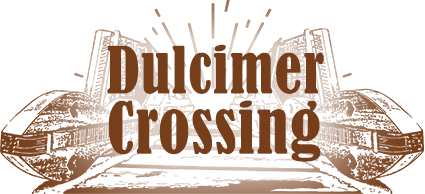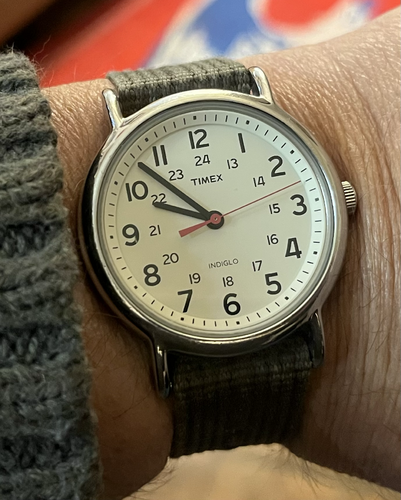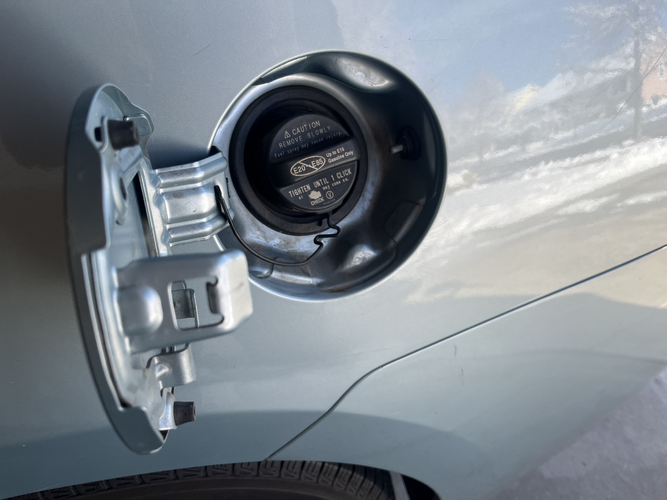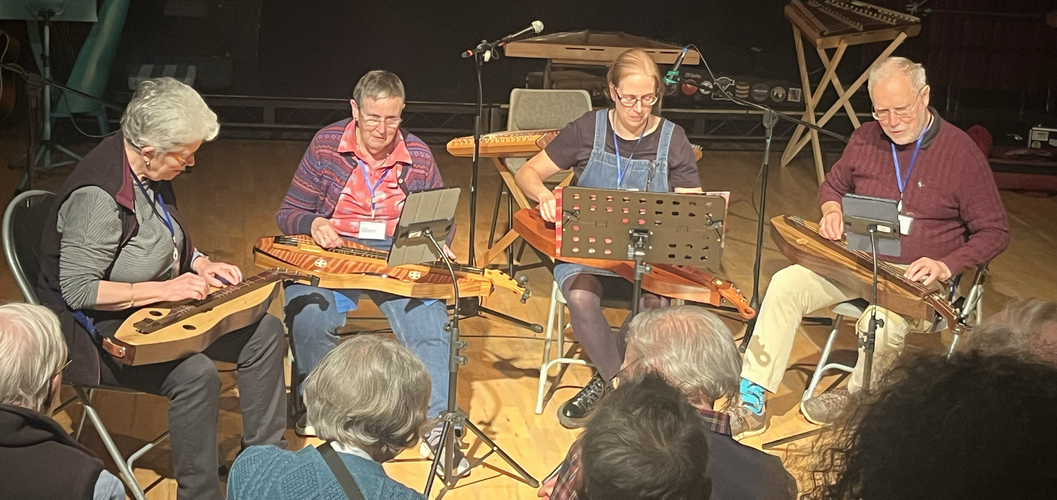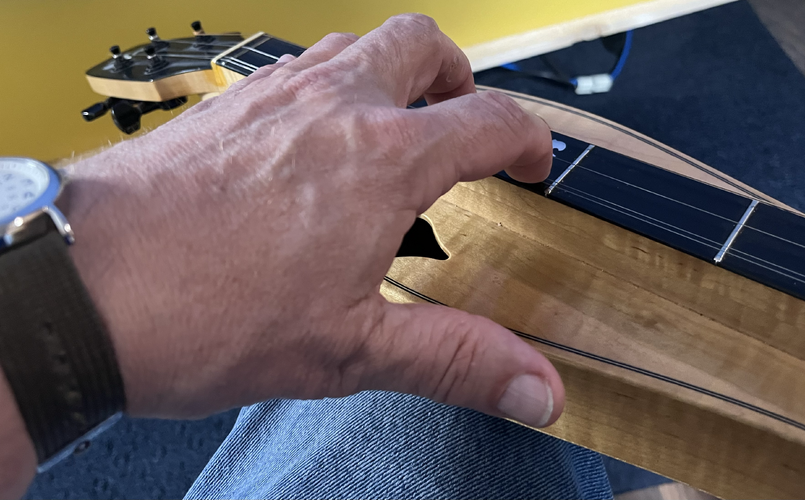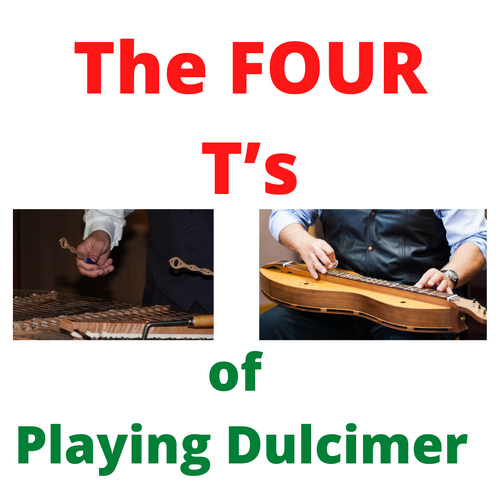Blog
How Much is Enough?
Can you guess the NUMBER ONE excuse people have for not being able to practice? If you guessed "not having enough time", you'd be a big winner.
... and I believe it's a totally bogus excuse!!
The good news is that you don’t need a lot of time to practice. Believe it or not, 20 minutes a day can do the job. Sure, that’s not a lot of time, especially when I think back to the “good old days” when I used to practice piano no less than 4 (yes, four) hours a day. On top of that, I also accompanied v…
The New Year’s a-Comin’
As we come to the end of 2023, Steve and I want to encourage you to take some time to recharge and reflect on your musical journey over the past year. To help you with this, we've compiled a list of questions that you can ask yourself to assess your progress and set new goals for the coming year:
- How have I grown as a musician this year? Reflect on the new skills, techniques, or pieces you have mastered, and acknowledge the progress you have made.
- What areas of my playing do I still want …
What Did You Learn Today?
When our children were in elementary school, we always had the “What did you learn in school today?” conversation around the dinner table. They would try to say, “Nothing,” but that just wasn’t an acceptable answer. After they got the idea that "Nothing" for a response wasn't going to fly in our house, my son and daughter knew they’d better be prepared with an answer, any answer, just so they could get on with their meal every single night.
Eventually our children grew up and flew the nest, but…
Hard Work Beats Talent
Have you ever thought that the one thing holding you back in learning to play the dulcimer is that you just aren’t talented enough. I have some GOOD news for you. Talent doesn’t matter nearly as much as you probably think. Through the years, I have learned that hard work beats talent when talent doesn’t work hard.
I’m 79 now and I’ve talked to … taught … mentored … and played along with many talented musicians. I can personally guarantee you – even the most talented and famous musicians have st…
Lighten Your Load

I want you to think for a minute about the Pony Express. From 1860-1862, mail was delivered in the United States by the Pony Express. This company was quite concerned about weight for the sake of speed. Riders had to weigh less than 125 pounds. While a mail bag as heavy as twenty pounds might be carried, the average weight did not exceed fifteen pounds. The horse as well as rider traveled very light. The combined weight of the saddle, bridle and saddle bags was not to exceed thirteen pounds. T…
Why Don’t I Practice More?

I’m a music teacher!!!! I know the importance of practicing regularly. I preach (teach) about the importance of practicing regularly. In spite of that, I find that “regular” practice usually only kicks in when I have a looming deadline.
Why is that? Is it because I’m too busy? Well, sure, I do have a lot going on. Is it because I’m too tired? True, at the end of the day I’m worn out. Is it that I’m not motivated to practice? Actually, my personal motivation appears to be linked to having a “p…
How Long Should I Practice

I have a close friend in South Africa. We email or “WhatsApp” nearly every day even though our time zones are 7 hours apart. Let’s just say, we have some midnight conversations, her time, from time to time.
She started taking piano lessons recently, and her first text about it was to tell me she had practiced 2 hours the day before, and when she came back to the piano the next day – she was back to ground zero. Aaaarrrrgh! Nothing she had practiced the day before stuck. She recorded herself t…
Never Stop Learning
You probably think that people like Steve Eulberg or Stephen Seifert have learned everything they can about playing the dulcimer, and just need to brush up on their skills now and then. You may even believe that someone like Erin Mae Lewis simply operates on a higher level and never has any problems with her playing. Well, it ain’t true.
Music, like any art form, is an evolving journey, and even the most accomplished musicians continue to grow, refine their skills, and explore new ideas. There…
You Want Me to WHAT???
Why is it, when someone asks us to perform our dulcimer for an audience that our mind goes into self-protection mode? We begin to conjure up excuses … “I’ll be out of town that week”, “I’m not good enough”, “I feel a cold coming on”, “I’m sorry but I already have other plans that day”, or “Oh no, I could never do that.”

Now let’s compare the reaction of a young child, let’s say between 6 and 9 years old, who is asked to play a tune for you. They’re excited. They can’t wait to take center st…
The 4 T’s of Learning to Play the Dulcimer
I read an article recently about the 3 P’s of music mastery. The three 3’s were Practice, Perseverance, and Patience. I found the article motivating, so I wondered if I could follow the same pattern for your newsletter – but by using a different letter. This is my first attempt. I was looking for the 3 T’s of learning to play the dulcimer but, instead of 3, I came up with 4.

- Time: Consistent practice over time is essential to master the dulcimer. After all, practice makes perfect, as th…
Categories
- News (6)
- Events (4)
- subscriber news (236)
- uncategorized (6)
- lessons (190)
- mountain dulcimer (203)
- hammered dulcimer (157)
- history (22)
- music theory (40)
- octave (1)
- plagal cadence (1)
- dulci-bro (73)
- fingerpicking (3)
- fingerstyle mountain dulcimer (4)
- nina zanetti (5)
- aeolian (2)
- dorian (4)
- ionian (3)
- lydian (1)
- mixolydian (3)
- modes (2)
- traditional (2)
- tuning (5)
- music education (2)
- NSME (1)
- standards (1)
- drone (3)
- folk alliance (1)
- jonah brody (1)
- koto (1)
- sam lee (1)
- scottish folk song (1)
- linda ratcliff (5)
- practice (29)
- chromatic mountain dulcimer (66)
- dulcimercrossing.com (2)
- erin rogers (7)
- building (8)
- black mountain (1)
- jerry read smith (1)
- Joshua Messick (1)
- song of the wood (1)
- don pedi (5)
- fiddle whamdiddle (9)
- miss mcleod (2)
- steve eulberg (30)
- vi wickam (9)
- buying (1)
- choosing (1)
- purchasing (1)
- orphan girl (1)
- copyright (1)
- amplification (2)
- contact pickup (1)
- eulberg (4)
- microphone (2)
- pickup (2)
- berkeley (1)
- colorado (2)
- festivals (4)
- kentucky (1)
- scholarship (1)
- western carolina (1)
- noter (2)
- clubfooted jib (1)
- dgd (2)
- dgd tuning (1)
- special event (31)
- david massengill (2)
- reverse ionian (1)
- chuck boody (1)
- concertina (1)
- deedee tibbits (1)
- dulcimer (7)
- evart (1)
- evart funfest (1)
- linda foley (1)
- michigan (1)
- original dulcimer players club (1)
- fingerstyle (11)
- gebhard woods (1)
- technique (1)
- harmonics (1)
- dan delancey (2)
- june apple (1)
- linda thomas (3)
- modal (1)
- expression (1)
- playing expressively (1)
- dulcimer pledge (1)
- christmas (2)
- nativity (1)
- DAC (2)
- minor more (1)
- mississippi sawyer (1)
- holiday (5)
- joy to the world (1)
- jingle bells (1)
- reverse ionion (1)
- hand independence (1)
- hand separation (1)
- lullabye of muffe (1)
- tina gugeler (1)
- absolute beginner mountain dulcimer (1)
- beginner (2)
- mountain (3)
- string-side up (1)
- absolute beginner hammered dulcimer (1)
- blog (2)
- dulcimercrossing. (1)
- topics (1)
- blues (4)
- resonator (4)
- dulcimer orchestra (2)
- kitty puss (1)
- mike clemmer (1)
- noter style (2)
- jam survival (7)
- butch ross (3)
- looping (1)
- intro (4)
- neal hellman (4)
- erin mae lewis (9)
- rehearsal (3)
- italian (1)
- lauda (1)
- irish (1)
- slipjig (1)
- rhythm (2)
- robert force (2)
- tuner (1)
- exercises (1)
- scales (1)
- devotions (3)
- hark advent (1)
- the glad sound! (1)
- chords (3)
- chromatic (4)
- erin (1)
- theory (7)
- advent (5)
- preparation (4)
- stir up (1)
- appalachia (4)
- hillbilly (1)
- mountains (1)
- traditional music (1)
- dampers (1)
- hearts of the dulcimer (3)
- patricia delich (2)
- wayne jiang (2)
- appalachian (1)
- John Jacob Niles (1)
- Live Events (28)
- Premium Level Membership (2)
- habits from the muse (1)
- progress (6)
- support (2)
- Anna Muckova (1)
- cimbalom (1)
- CWA (1)
- Czech Republic (1)
- Magdalena Muckova (1)
- nonsuch (1)
- Slovak Republic (1)
- podcast (1)
- aubrey atwater (2)
- jean ritchie (2)
- log-in (1)
- update (1)
- lucky (1)
- performance (9)
- preparing (1)
- study (1)
- dulcimers (1)
- wendy songe (2)
- bluegrass (2)
- growth (1)
- resolutions (2)
- risks (1)
- capo (1)
- snark (1)
- fiddle (61)
- criticism (2)
- judy klinkhammer (1)
- miles davis (2)
- wrong note (1)
- live and let live (1)
- style (1)
- barlow knife (1)
- old school old-time (2)
- marie kirby (1)
- bass mountain dulcimer (1)
- elaine conger (1)
- larry conger (1)
- practice smarter (8)
- musical journey (1)
- piano (1)
- calm (1)
- dog (1)
- su la li (1)
- bluebird cafe (1)
- inspiration (3)
- new input (2)
- trust (1)
- practice space (2)
- quite (1)
- how to practice (8)
- you are what you practice (1)
- workshop (5)
- rich chords (2)
- kaitlin pabo-eulberg (1)
- hooked on dulcimers (1)
- humor (1)
- blue water thinking (1)
- creativity (2)
- environment (2)
- original tunes (1)
- 1+ fret (1)
- chopin (1)
- classical (1)
- assessment (1)
- skill levels (1)
- waltz (1)
- caledonian club (1)
- ensemble (1)
- group (1)
- dulci-tune (1)
- tuning game (1)
- love (2)
- workout (1)
- learning (8)
- teacher (6)
- self-taught (1)
- how long (1)
- jam sessions (6)
- learn to play (1)
- strategies (2)
- fariña (1)
- mimi (1)
- pete seeger (2)
- rainbow quest (2)
- goals (1)
- planning (1)
- backing tracks (6)
- matthew dickerson (2)
- concert (1)
- erin mae (2)
- guitar (5)
- deborah hamouris (3)
- dj (2)
- freight and salvage (1)
- classic (1)
- licks (1)
- rock (1)
- berkeley dulcimer orchestra (1)
- premiere (1)
- banjo (1)
- frank proffitt (1)
- frank warner (1)
- tom dooley (1)
- baker (1)
- binding (1)
- blue lion (1)
- bob (1)
- gluing (1)
- janita (1)
- live (1)
- tips (1)
- spouse (1)
- amplified (1)
- DI box (1)
- digital interface (1)
- sound reinforcement (1)
- 2nd Set Concert (2)
- contest (1)
- flash mountain dulcimer brigade (2)
- JimJim & the FatBoys (1)
- Pecan Grove (1)
- walnut valley festival (2)
- winfield (1)
- wvfest (1)
- thinking (1)
- case (1)
- cross-legged (1)
- grip (1)
- safe dulcimer (1)
- sit (1)
- slip (1)
- stand (1)
- stool (1)
- strap (1)
- learn (3)
- mistakes (1)
- successes (2)
- herbie hancock (1)
- improvising (1)
- jazz (2)
- lois hornbostel (2)
- wrong chord (1)
- atlantic (1)
- barbara allen (1)
- frank profitt (1)
- scots-irish (1)
- chord wizard (1)
- diatonic (2)
- equi-distant (3)
- tom strothers (1)
- tool (2)
- busker (1)
- tsimbaly (1)
- ukraine (1)
- ukrainian (1)
- calendar (1)
- schedule (1)
- baritone (1)
- concert window (3)
- katie moritz (1)
- faq (1)
- frequently asked questions (1)
- logged in (1)
- navigation (1)
- old time (1)
- patreon (1)
- shape-note (1)
- special (1)
- carrell (1)
- geoff reeve-black (1)
- malvern (1)
- presnell (1)
- articulations (1)
- chicken reel (1)
- conger (1)
- soldier's joy (1)
- basic level membership (1)
- caring for your instrument (1)
- winter weather (1)
- god rest ye (1)
- rhythmic displacement (1)
- builder (1)
- tam kearney (1)
- toronto (1)
- don neuhauser (1)
- slide (1)
- ashley ernst (1)
- dan and angie landrum (1)
- dpn (1)
- dulcimer players news (1)
- dulcimersessions.com (1)
- maddie macneil (1)
- arkansas traveler (1)
- Mark Alan Wade (2)
- 3d playing (1)
- playing across the strings (2)
- chord symbols (1)
- understanding chords (3)
- dulcimer club (1)
- class (1)
- habits (1)
- skills (1)
- jimmy driftwood (1)
- failures (1)
- hours (1)
- youtube (1)
- arranging (1)
- bill robinson (1)
- cold winter night (1)
- karen mueller (3)
- jig (1)
- DAd tuning (1)
- hyfrydol (1)
- hymn (1)
- 2020 (1)
- premium (1)
- gounod (1)
- hitchcock (1)
- dan evans (1)
- spotted pony (2)
- steveeulberg (1)
- nylon-string (1)
- stephens lutherie (1)
- musical devotions (1)
- award (1)
- fernando sor (1)
- hammered (1)
- understanding (1)
- lent (1)
- leap forward (1)
- power of music (2)
- News (10)
- Events (4)
- mountain dulcimer (147)
- hammered dulcimer (151)
- chromatic mountain dulcimer (8)
- sharing (1)
- persistence (5)
- Practice (4)
- routine (1)
- tour (1)
- new website (1)
- arrranging (1)
- celtic (1)
- single jig (1)
- mountain dulcimer (3)
- busking (1)
- audio (1)
- playback (1)
- protection (1)
- adaptations (1)
- dulcimer acquisition syndrome (1)
- dulcimer acquisition disease (1)
- contests (1)
- lessons (1)
- identify (1)
- apps (1)
- motivation (1)
- hands (1)
- In Memoriam (1)
- guitar (1)
- archive (1)
- concerts (1)
- mountain dulcimer (2)
- hammered dulcimer (1)
- lessons (1)
- workshops (1)
- self-assessment (1)
- learn (1)
- greek (1)
- mindset (3)
- accountability (2)
- encouragement (1)
- prodding (1)
